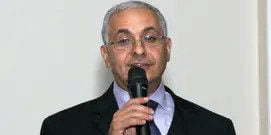‘Hospitality makes a guest feel comfortable, enriches the host, and often produces unpredictably beneficial social and legal results’

Jim Vickaryous
Offering a cup of coffee is often the first act of hospitality shown by one lawyer to another. It not only identifies one as a good host, but also sets the stage for the expectation of civil behavior and provides an introductory icebreaker before beginning to work together. In a rare in-person deposition recently, I was pleasantly surprised by the opposing law firm’s hospitality. I was in the belly-of-the-beast, so to speak, but they made my client and me feel very welcome. My opposing counsel’s assistant not only offered coffee but offered to brew a fresh pot. Also noticing that I had forgotten to bring a yellow legal pad, she grabbed one for me without me even asking. How hospitable, I thought to myself.
As a new lawyer, I remember showing up to an empty country courtroom, except for a lone courtroom deputy. I was worried that I had driven all that way and somehow the hearing had been cancelled. The deputy eased my worries, letting me know that all the lawyers were in the judge’s chambers, as the judge served morning coffee before calling the first case. I walked into chambers and the judge himself poured me a cup of Joe. You could see the contagious effects of his hospitality when court was in session. The lawyers felt welcome, and the argument was civil and well-reasoned. You may or may not have been pleased with his rulings, but you couldn’t be upset with the judge after his show of such gracious hospitality.
The tradition of hospitality stems from prehistory. In Roman times, laws were enacted to secure what in Latin is called hospitium, the Roman law of hospitality. Hospitality was expected and required. The great lawyer of the late Roman Republic, Marcus Tullius Cicero, wrote often of how hospitality should be the generous habit of both citizen and lawyer. The Levantine ancients required hospitality to strangers, as it was their belief that you never know when you are entertaining angels.
True hospitality is always a wonderful thing to experience, as it shows the heart of the host. My California co-counsel insisted that I stay at his home while I was attending court with him. He picked me up from the airport and his wife even cooked a wonderful dinner. He even offered to let me use his car. His hospitality skills were not just those of a seasoned host. At the Los Angeles Superior Courthouse, he could not walk 15 feet without a handshake and a smile from every passing lawyer. Over a career of dedicated lawyering and generous hospitality, the level of respect and trust his colleagues treated him with was impressive. Hospitality was the bedrock of his wildly successful legal career.
Hospitality is contagious. As Hurricane Ian has hurt so much of Florida, hospitality is needed so much more now. After the hurricane, my wife received a call from an old friend from Estero, Florida. She had sheltered the storm at her mother-in-law’s home in Central Florida, but the power had gone out and needed a working refrigerator for the supplies for her six-month-old daughter. She, her husband, her two-year-old daughter, and infant daughter came to our home. As we had lunch, we learned that they were now homeless. Their Estero home had flooded from Ian’s storm surge. In the days that they stayed with us, we heard countless chilling stories as her neighbors called and told her how her community had been destroyed. Life can be strange, as the same week that she lost her home, her article was published “above the fold” on the front page of The New York Times, a career achievement for any journalist. Seeing her young family coming back from this disaster gave me great encouragement. Nothing was going to slow down her six-month-old daughter either, a true bundle of joy, always smiling and a calming influence on all around her.
We live in a world of diminishing hospitality. We see it in our everyday lives and can become disheartened because of its conspicuous absence. While the world around us may be less hospitable than it was in the past, we should not succumb to this trend as lawyers. In fact, we should become even more hospitable. Hospitality makes a guest feel comfortable, enriches the host, and often produces unpredictably beneficial social and legal results. As the hospitality of those around you recedes, your hospitality is that much more important, memorable, and impactful. Despite everything that’s going on around us, let us all resolve to be the most hospitable lawyers.
Jim Vickaryous is the managing partner of the Vickaryous Law Firm in Lake Mary and represents the 18th Circuit on The Florida Bar Board of Governors.
![Florida Lawyers Network - [FLN]](https://floridalawyersnetwork.com/wp-content/uploads/2021/02/FLN_logo.jpg)










